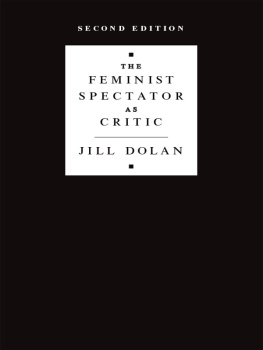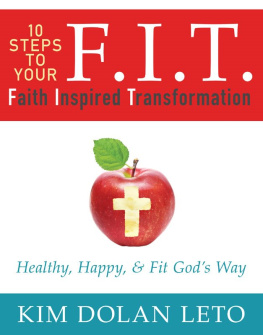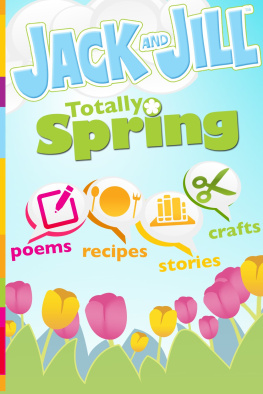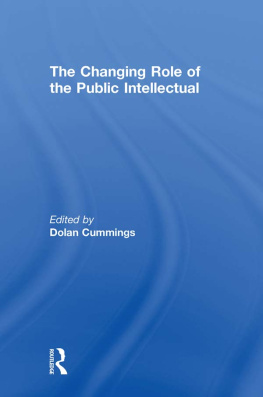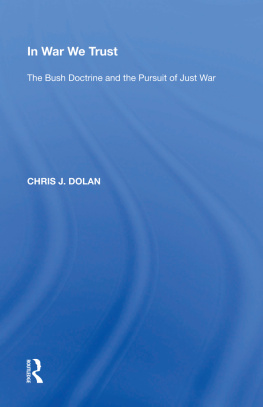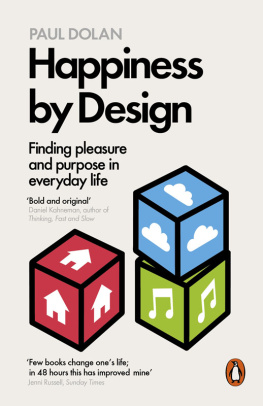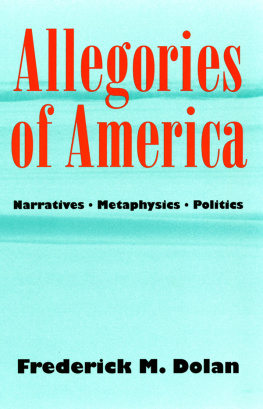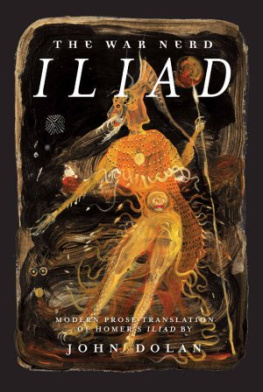Jill Dolan - The Feminist Spectator as Critic
Here you can read online Jill Dolan - The Feminist Spectator as Critic full text of the book (entire story) in english for free. Download pdf and epub, get meaning, cover and reviews about this ebook. year: 2012, publisher: University of Michigan Press, genre: History. Description of the work, (preface) as well as reviews are available. Best literature library LitArk.com created for fans of good reading and offers a wide selection of genres:
Romance novel
Science fiction
Adventure
Detective
Science
History
Home and family
Prose
Art
Politics
Computer
Non-fiction
Religion
Business
Children
Humor
Choose a favorite category and find really read worthwhile books. Enjoy immersion in the world of imagination, feel the emotions of the characters or learn something new for yourself, make an fascinating discovery.
- Book:The Feminist Spectator as Critic
- Author:
- Publisher:University of Michigan Press
- Genre:
- Year:2012
- Rating:4 / 5
- Favourites:Add to favourites
- Your mark:
- 80
- 1
- 2
- 3
- 4
- 5
The Feminist Spectator as Critic: summary, description and annotation
We offer to read an annotation, description, summary or preface (depends on what the author of the book "The Feminist Spectator as Critic" wrote himself). If you haven't found the necessary information about the book — write in the comments, we will try to find it.
The Feminist Spectator as Critic — read online for free the complete book (whole text) full work
Below is the text of the book, divided by pages. System saving the place of the last page read, allows you to conveniently read the book "The Feminist Spectator as Critic" online for free, without having to search again every time where you left off. Put a bookmark, and you can go to the page where you finished reading at any time.
Font size:
Interval:
Bookmark:

BOOKS BY JILL DOLAN
The Feminist Spectator in Action: Feminist Criticism for the Stage and Screen
A Menopausal Gentleman: The Solo Performances of Peggy Shaw, edited by Jill Dolan
Theatre & Sexuality
Utopia in Performance: Finding Hope at the Theatre
Geographies of Learning: Theory and Practice, Activism and Performance
Presence and Desire: Essays on Gender, Sexuality, Performance
The Feminist Spectator as Critic
Copyright 1988, 2012 by Jill Dolan
Published by the University of Michigan Press 2012
All rights reserved
This book may not be reproduced, in whole or in part, including illustrations, in any form (beyond that copying permitted by Sections 107 and 108 of the U.S. Copyright Law and except by reviewers for the public press), without written permission from the publisher.
Published in the United States of America by
The University of Michigan Press
Manufactured in the United States of America Printed on acid-free paper
Printed on acid-free paper
2015 2014 2013 2012 4 3 2 1
ISBN 978-0-472-03519-9 (pbk.: alk. paper)
ISBN 978-0-472-02899-3 (e-book)
For my students, past, present, and future, who inspire all these thoughts and all my work.
This book is not meant to be a definitive study of feminist performance criticism. Rather, in some ways, it is a historical accounting of the different methodological and ideological pathways this criticism has taken over the last twenty-odd years, illustrated here by critical case studies. I do not mean to neutralize my own critical stance by that caveat; the following pages should be clearly understood as representing my own methodological and ideological position as a materialist feminist critic.
The book is organized as a series of essays that refract around the central topic, which is detailed in . Taken together, the essays should provide a cumulative effect, rather than a necessarily linear one. The last chapter, however, does represent work that I feel is the most stimulating and provocative of contemporary feminist performance criticism.
Writing for people interested in a feminist approach to theatre and performance is a challenging task, since that constituency is large and varied from theoretical, political, and ideological perspectives. Any feminist endeavor in this area confronts the problemand pleasureof diversity among its audience. The Women and Theatre Program of the American Theatre in Higher Education organization, for example, is charged with appealing to academics and practitioners and a range of women who admit to very different stances vis--vis feminism. Women & Performance Journalwith which I was involved as managing editor and cofounder at its inception in the Performance Studies Department at New York Universityworried at the outset about providing a forum for all women interested in performance.
As I hope to clarify in this study, I believe that such a committedly nonpartisan approach inevitably butts against its own limitations. How can an organization or a journal provide a kind of visionary leadership if it does not take a clear ideological and political stand on its own issues? In January 1988, the Women and Theatre Program created formal by-laws that at least set forth the organization's commitment to address and attempt to eradicate sexism, racism, and homophobia as part of its charter. This stated intent cannot help but focus, shape, and lend vitality to the group's future work.
In publication, it seems equally important to take a stand and to state it at the outset of one's writing. If part of the materialist feminist project is to demystify ideological authority in performance and in dramatic literary texts, it is necessary to guard against reinstituting the materialist feminist critic as the absent, naturalized authority. Demystifying the author and particularizinginstead of idealizingthe reader for whom she writes seems imperative as part of the critical process.
I have tried continually to clarify my stance and my ideological, political, and personal investments in the studies that follow. I write from my own perspective as a white, middle-class woman, with every effort to stay aware of and change my own racism and attitudes about class. As a Jew and as a lesbian, I also write from my own awareness of exclusion from dominant ethnic and heterosexual discourse. I hope that readers constituted across a diversity of race, class, ethnicity, gender, and sexual preference identities will find the ideas in these pages useful.
This text is written for practitioners and critics, historians and theorists, academics and professionals, and myriad other feminist spectators interested in what it means to combine feminism and performance. I see it as an introduction to feminist critical and theoretical ideas relevant to theatre and performance. Still, it straddles a somewhat precarious position in relation to its intended readership.
On one hand, although it is an introduction, it demands at least a cursory familiarity with post-structuralism, deconstruction, and semiotics. I have tried to refrain from needlessly opaque jargon. But formulating new critical theory demands a new critical language, which I do draw on here. On the other hand, in addition to introducing these ideas, I would like this work to challenge and provoke colleagues who are already breaking new ground in the field of feminist theatre criticism. I hope that both sets of readers will find their way here. With an eye toward provoking dialogue and debate, both are envisioned in these pages.
This book in some respects charts my own development as a feminist performance critic, and there are many people who in one way or another helped to shape my growth and its direction. The editorial board of Women & Performance Journalwhich began meeting as an informal feminist support group in Performance Studies at New York University in Fall 1981provided me with a continual sounding board during my graduate work. The Women and Theatre Program of the defunct American Theatre Association, now reconstituted as American Theatre in Higher Education, has given me a supportive forum for my thinking since I began attending their conferences in 1983. My personal sense of growth is justly shared by the members of that organization, as we move together toward a sophisticated, but accessible, political and theoretical, practice-oriented consideration of feminism and theatre.
Kate Davy's insight into body image and performance, and her comments on my work on Richard Foreman, were very helpful on initial drafts of chapters .
The continuing discussions among my feminist colleaguesat conferences, through their published work, and through our informal but crucial national networkand my first group of students in feminist theory and theatre at the University of Washington in Seattle in Fall 1987 provided me with the constant and final impetus to think and to write this book. I would also like to thank Barbara Kirshenblatt-Gimblett, Susan Slyomovics, Brooks McNamara, and Michael Kirby for their comments on the manuscript.
Two people warrant special thanks. Personally, professionally, and politically, Sue-Ellen Case has been a continual source of inspiration. With her energy, commitment, and sense of purpose, she serves as an invaluable role model, and has blazed the trail for feminist theatre critics in the academy and in the theatre profession. Finally, Peggy Phelan's work on this manuscript as editor, advisor, and intellectual watchdog continually prompted me to challenge myself and to push further. I sincerely appreciate her dialogue with me around this work.
Font size:
Interval:
Bookmark:
Similar books «The Feminist Spectator as Critic»
Look at similar books to The Feminist Spectator as Critic. We have selected literature similar in name and meaning in the hope of providing readers with more options to find new, interesting, not yet read works.
Discussion, reviews of the book The Feminist Spectator as Critic and just readers' own opinions. Leave your comments, write what you think about the work, its meaning or the main characters. Specify what exactly you liked and what you didn't like, and why you think so.

